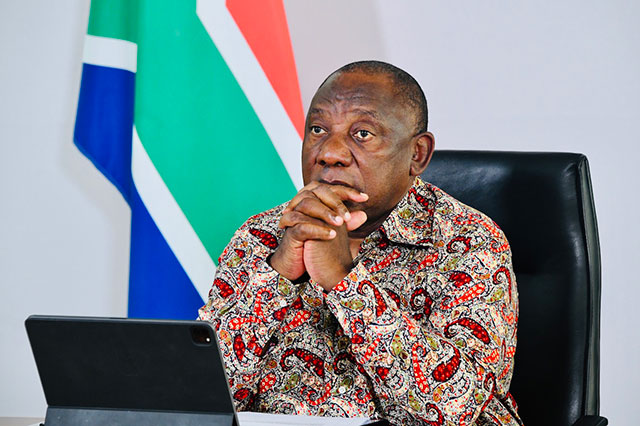Cape Town – President Cyril Ramaphosa has underscored the vital role of developing a competent state as a cornerstone for fostering an inclusive economy.
In his weekly newsletter on Monday, the president highlighted the Government of National Unity’s priorities and emphasised efforts to strengthen the state’s capabilities.
Ramaphosa said that this involves enhancing the “capability of the state and establishing a professional public service”.
“This work is already well underway. The national framework for the professionalisation of the public service was adopted by Cabinet in 2022 to guide public service reform. The Department of Public Service and Administration [DPSA] has already issued two directives giving effect to the framework.
“The framework aims to build meritocracy in the public service. Recruitment and selection processes are being overhauled, as are performance management systems. Competency-based assessments and integrity tests are being introduced. These tests will be used across the public sector, including to persons appointed into political offices such as ministerial advisers and chiefs of staff,” he said.
Within the public service, professionalism, integrity and commitment to the policies of the government of the day must transcend all political and ideological affiliations.https://t.co/z4syDiMjcm pic.twitter.com/pjYy0S4UAP
— Cyril Ramaphosa 🇿🇦 (@CyrilRamaphosa) July 22, 2024
Ramaphosa also stressed the need for capable leadership, outlining educational programmes for elected officials and executive managers.
“These involve formal learning programmes delivered by renowned experts, high-level masterclasses and seminars on issues ranging from the art of execution to ethics and economic governance. There are also flagship programmes tailored for accounting officers and induction training for boards of state-owned enterprises.
“Leaders in national and provincial governments will undergo training and development programmes throughout the seventh administration, starting with the National School of Government’s ethical leadership and oversight programme.
“Other areas of training include economic governance, scenario planning and digital transformation. It is encouraging that traditional leaders are also prioritising their development through short learning programmes and formal qualifications,” he said.
Vulnerabilities to private interests
“While there may be a temptation for members of the Executive to favour the policies of their own political parties, we are working to develop the Medium-Term Development Plan and implement the programme of government as a united government, not as individual parties.
“Within the public service, professionalism, integrity and commitment to the policies of the government of the day must transcend all political and ideological affiliations.
“State capture provided a bitter lesson on the vulnerabilities of the public sector to interference by private business interests. As the Government of National Unity, as a country, we must ensure that this never happens again. We must actively guard against the forms of executive overreach witnessed in the past,” Ramaphosa said.
Follow African Insider on Facebook, X and Instagram
Picture: X/@PresidencyZA
For more African news, visit Africaninsider.com
Compiled by Betha Madhomu


